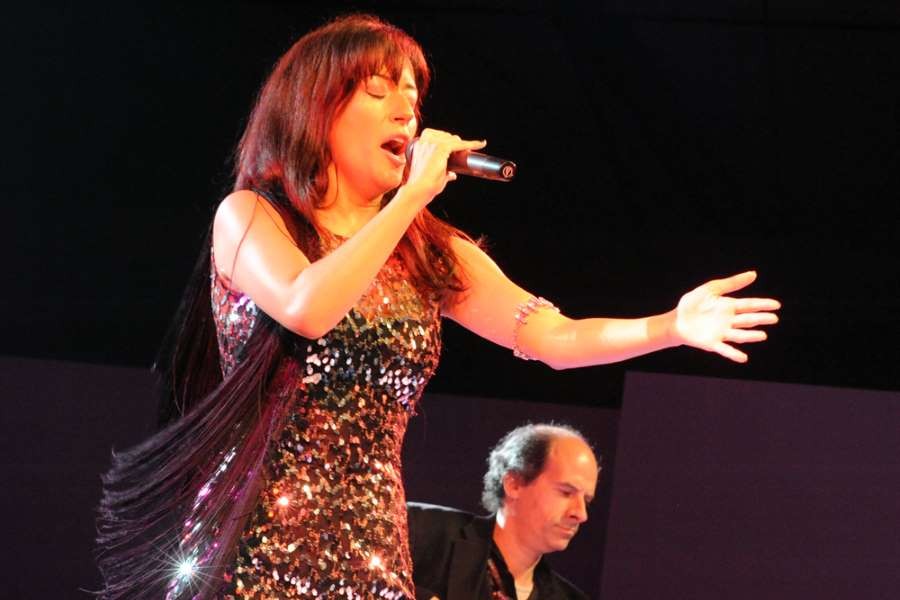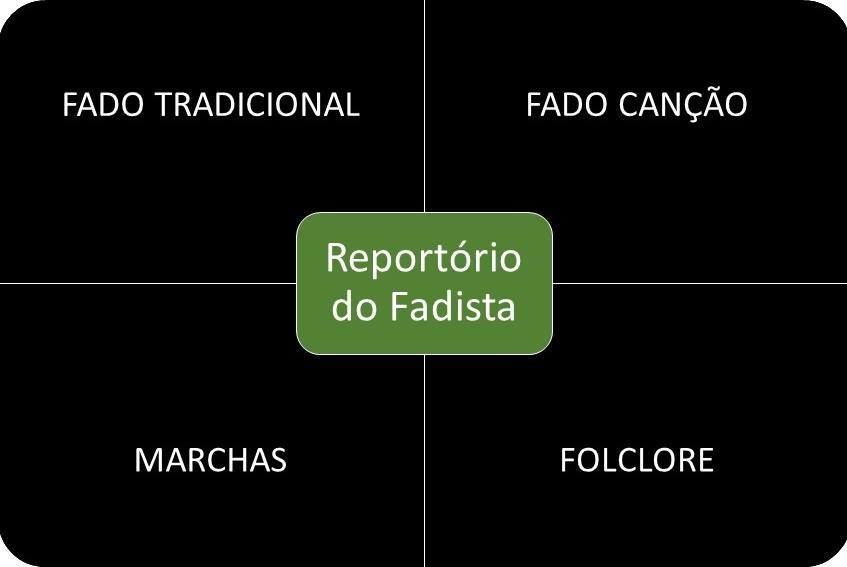Did you know that not everything a fado singer sings is Fado? Do you know the difference between “Fado Tradicional“, “Fado Canção“, “Marcha” e “Folclore“? If your answer is no, you need to read this article!

“I… I go out there, I sing Fado , I sing “Marchas”, I sing “Folclore”, I sing Spanish songs, I sing Brazilian things. I do a mixed program.
What it is, is that (unless there are Spaniards in the audience, or Portuguese or Brazilians, the French, the Germans, the Americans. the Greeks, the Trojans, the, I don’t know, all the countries that there are now, that have invented too) think that all the songs I sing are Fado, since I am announced as fado singer, a singer of Fado of Portugal.
I mean, Amália Rodrigues, everyone already knows that it’s Fado and that it’s Portugal. Sing what I sing. Because they don’t know what Fado is, they think, assume that all I sing is Fado.”
Amália Rodrigues
Nowadays, there is a lot of confusion around what Fado is.
On the one hand, as Amália Rodrigues said, one can fall into the error of thinking that all a Fado singer sings is Fado.
But, if in that time, the Portuguese, Spanish and Brazilians could make the distinction, today, even the Portuguese musical industry doesn’t know what Fado is!
The culmination of this situation occurred when Ricardo Ribeiro (one of the greatest modern Fado singers) refused a nomination for Best Fado Album at the Play awards,stating that the album in question (Respectfully Mind) is not about Fado!
On the other hand, many people confuse Fado names with fado types or styles! Even in several articles on the Internet, including Wikipedia, we see Fado titles, mixed with Fado styles and types of Fado manifestations!
There are the titles of Fado Tradicional (this is the name of a traditional Fado song) that always begin with “Fado…“
“Fado Bailado”
“Fado Marialva”
“Fado Corrido”
“Fado Alcantara”
Etc…
There is a fado style called “Fado Canção“. And song titles on this style can also start with “Fado”…
“Fado do Estudante”
“Fado Hilário”
“Fado Português”
Etc…
And there is also “Fado Vadio“, which is a form of manifestating and sharing of Fado, not a Fado style. It’s like a karaoke of Fado, but with real guitar players.
And there are still some adjections of fados, but that do not constitute a style of Fado, but rather a characteristic, for example “Fado Castiço”. But in this situation the word castiço is only an adjective.
All this can create a lot of confusion. Therefore, let’s analyze what, currently, fado singers usually sing in their shows and try to understand each of these styles.

There are two great fado families: Fado Tradicional and Fado Canção (or Musicated Fado).
But in most concerts, fado singers, like Amália Rodrigues, also do a “mixed program” and sing two more styles of Portuguese music, but that are not Fado: Marchas and Folclore.
Let’s see how these four styles are different and what characterizes each of them.
Fado Tradicional
A good modern interpretation of a Fado Tradicional theme (Fado Bizarro)
Fado Tradicional (Traditional Fado) is the name given to a set of fados with unique characteristics. We can say that it is Fado in its purest state and that its practice and musicality are distinct from all other musical genres.
But although it is called “traditional” we should not judge that this is Fado of the past or that it is fado the old-fashioned way. This is the style that gives more freedom to the artist, in which musicians have more interpretive possibilities.
Some of the most interesting features of this style are the following:
- The name of a Fado Tradicional it’s only for the music;
- The selection of the poem is the responsibility of the fado singer;
- Fado Tradicional has no chorus;
- To interpret Traditional Fado is to create, not to reproduce, because we do not follow a score. It’s like a jam session.
I will not extend myself on this style which is The Fado, because I wrote an article entirely dedicated to Traditional Fado.
I advise you to read and, if you are not convinced, listen to what Teresinha Landeiro says about Fado Tradicional (1:37).
Fado Canção
One of the most popular themes of Fado Canção
Fado Canção results from the integration of other musical languages into Fado. Therefore, it is also called “Fado Musicado” (musicated Fado).
In a simple way, it can be said that it is a mixture of Fado with other musical genres. Sometimes it gets closer to Fado’s aesthetics, but other times it completely distances itself.
An example of a success of modern Fado Canção, far removed from the aesthetics of Fado
A good example of a modern approach to a Fado Canção – “Noite” (night) – with good Fado style
Almost all Fado hits fall into this category. If you search for “Fado” on Youtube, most of the results are of this type of Fado and not Fado Tradicional.
There is a chorus and, unlike Fado Tradicional, the theme name refers to song and lyrics as a whole.
Marchas and Folclore
These two styles, despite being sung by most Fado singers, are not Fado. But it’s worth knowing them if you want to be able to identify when you’re listening to them.
Marchas
Being a strong popular tradition and with great strength in Lisbon, some important fado singers began to sing Marchas in their shows.
In the video below (0:35), you can listen to guitarist Paulo Valentim, from Casa de Fado Parreirinha de Alfama, talking about Fados and Marchas.
In these songs it is often requested the collaboration of the audience to mark the rhythm with applause and to sing the choruses.
Folclore
Folclore (folklore music), typical songs from various regions of Portugal, has also been integrated by fado singers in their concerts.
In the video below, you can hear the fado singer Filipa Cardoso present the theme she will sing, not as a Fado but as Folclore (0:29)
It is also a cheerful and easy to hear style, where you can ask the collaboration of the audience to sing and clap.
Is this all Fado?
A fado theme where you question what Fado is, but in a Fado Canção!
Many people say they like “happy fado”, when, in fact, they don’t know (because they think that all a fado singer sings is Fado) that what they like is Marcha, Folclore and some more comercial Fado Canção.
I remember once in a restaurant, when the singers asked us for a Fado, they just said:
“It’s Fado [name of the Fado] “
But when they wanted to sing Marcha, Folclore and comercial Fado Canção, they told me:
“It’s the [name of the song] … for them…”
Here “for them” meant for them to be amused, for them to clap, for them to sing, for them to participate, etc.
Some consider that Fado itself is Fado Tradicional. It is an open but unique style that differs from others, not only by its sound, but also by the particularities that make it different from other musical genres.
Isn’t “Fado Canção” Fado? Sometimes it is, most of the times not.
It is not possible to establish scientific boundaries for this issue, but for me it is easy to realize that fado’s successes like Nem às Paredes Confesso, Canto o Fado, Chuva or Quem dera, are not Fado because they are simply much closer to other musical genres than fado.
I hope that now, when you go to a Live Fado concert, you know if you are listening to Fado, Marcha or Folkcore and that, when you are listening to Fado, you can distinguish between Fado Canção or Fado Tradicional 🙂
And, since you’ve reached the end of this article, click here to test your knowledge of styles in Fado.